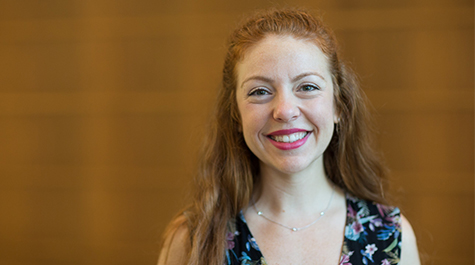A professor’s work in the Palestinian movement towards inclusive education
Rodriguez' publication came out of research she did for her doctoral work. While visiting family living in Palestine, she became interested in the Palestinian view of education as a singular path to individual success even in a situation of civil conflict. Her curiosity led to a proposal to work with UNRWA on their efforts to increase inclusion.
"They wanted to have an inclusive education policy in place," she said. Once the plan was approved and signed by the Secretary General of UNRWA, they faced another question: "How do you encourage the five disparate locations with Palestinian refugees (Jordan, Lebanon, Syria, and the Occupied Palestinian Territories of the West Bank and Gaza) to adopt it and put it into practice?"
In the process of translating policy into practice, Rodriguez and her colleagues heard from numerous stakeholders about barriers to inclusive education. "Maybe it’s capacity building for teachers, maybe its allocation of resources, maybe it’s assessments and figuring out which students have disabilities, and maybe it’s a need for an advocacy campaign. Some of it, from Gaza in particular, had to do with the restrictions in place due to occupation," she observed.
Her work with UNRWA led to a comprehensive review of efforts towards inclusive education in Palestine spanning 70 years. "To be fair when you are considering a literature review of work in an area that went through significant conflict and occupation, and has seen a variety of national and international actors oversee them, even though education is important to the community you’re not necessarily going to see wide scale inclusion of all students, because there are so many things happening at once."
While Palestine and the various localities faced a unique set of barriers to inclusion, Rodriguez argues that many of the challenges faced in Palestine are universals that have to be addressed in a culturally sensitive way in each new locality.
"For example, every country is struggling with assessment, and determining who qualifies for services," she said. In some ways, nations follow a similar trajectory in their approach to inclusive education. "When you capacity-build for a nation state, practically speaking, the government will likely want to consider how the field addresses assessment for students with special needs. However, it would be a disservice to the students in the local community if schools were to use another country’s assessment. What is culturally relevant to one community is not relevant to another," she said.
Despite the fact that much of her work with UNRWA revealed a list of challenges to inclusive education, Rodriguez reports increasing admiration for the commitment of Palestinian educators and communities to education. The resilience and motivation of educators and communities to maintain access to education inspired her.
"Personally, I was really fascinated with Palestinians being early adopters of education as a human right and early adopters of the belief that education is the way in which a society is developed holistically. It’s encouraging to see a group of people who have always believed that education is an answer to occupation and continue to put that into practice," she said. "I don’t think people truly appreciate what it is like to have an entire public-school system built on a half day model with double the enrollment. A teacher has a significantly reduced amount of time to give instruction, and you’re giving instruction in buildings that were not intended to be schools. The fact that they have been academically competitive despite decades of marginalization, depleted resources, and continued conflict, I don’t think we celebrate enough."
In her review, Rodriguez highlights the international commitment, reflected in the work in Palestine, to provide accessible, inclusive education to all students, regardless of disabilities. But, she acknowledges, putting that commitment into practice may require deep reflection on a local level with respect to beliefs about disabilities and the practical barriers to inclusive education.
